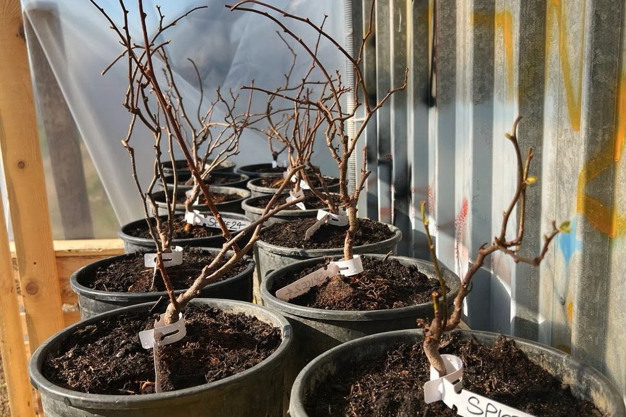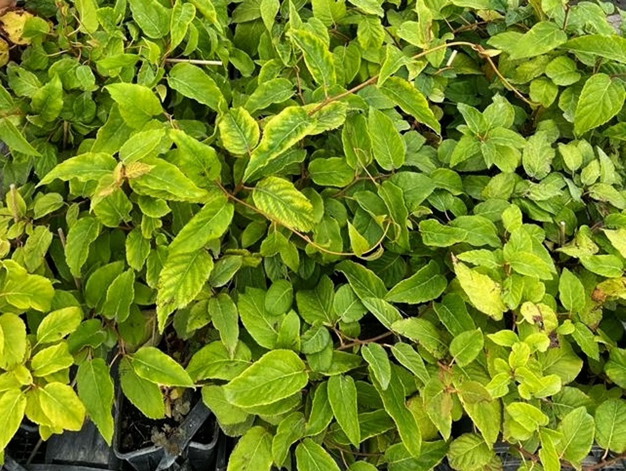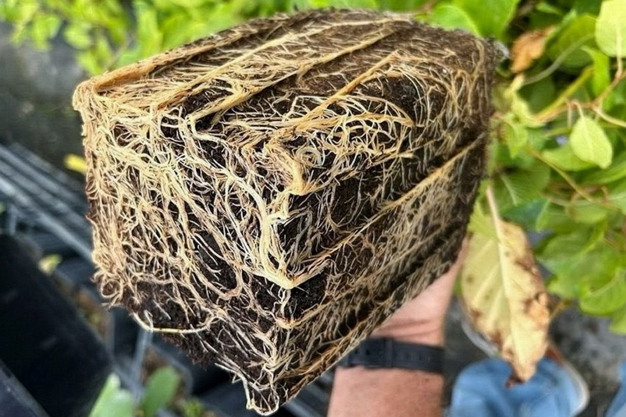The Kiwifruit Vine Decline, known as 'moria,' is a soil-based disease initially observed in Verona in 2013. It has since spread to various regions in Italy, including Latina, the largest kiwifruit growing area in the country. Moria has severely impacted kiwifruit production in Italy, causing harvest volumes to plummet from a peak of over 550,000 tons in 2015 to less than 210,000 tons today. Affected kiwifruit vines experience a decline in productivity and health over a 2-3 year period, rendering it economically unviable for growers to continue production.
Despite the challenges, there has been limited support or financial assistance from universities, government, and other institutions. A ray of hope emerged in 2015 with the introduction of a new Actinidia macrosperma (Bounty71/Sav1) rootstock in the area of Verona, providing a glimmer of optimism for Italian kiwifruit growers during these difficult years.

Bounty71 has offered Gold and Red kiwifruit growers some hope for the future, but it proves less durable when used on Hayward (Green Kiwifruit) orchards. Grafting Bounty71 onto Hayward in orchards is challenging, and the low vigor of Bounty rootstocks makes it potentially difficult to re-establish existing orchard structures.
Various solutions have been proposed, including soil drenching with chemicals (a near-impossible task with potential fruit residues) and soil fumigation (long outlawed in the EU). Trials are ongoing, but practical solutions for desperate kiwifruit growers have yet to emerge.

A group of determined Latina kiwifruit growers, unwilling to surrender hope, is exploring genetic solutions to address the Moria problem. They have chosen to tackle the issue by introducing disease-resistant rootstocks to Italy through selective crossing of Actinidia rufa, a kiwifruit species well-known in Japan and Korea for its tolerance to poor soil conditions and soil-based diseases, including pythium, phytophthora, and rhizoctonia. These selected seed crosses from Japan were imported into Italy in 2021.

Since 2021, the imported material has been monitored in vitro and in nurseries, leading to the selection and patenting of a new rootstock variety tentatively named SPICE24. It is anticipated that SPICE24 will aid green growers in Italy in re-establishing their orchards and financial livelihoods. The plants are being offered free of charge to a select number of growers to facilitate on-orchard testing in Latina, and interest in participating in these trials has been widespread. SPICE24 owners are seeking sponsors to further the development of commercial kiwifruit rootstocks in Italy and Europe.
For more information:
+39 375 6232675
spice24rootstock@gmail.com
